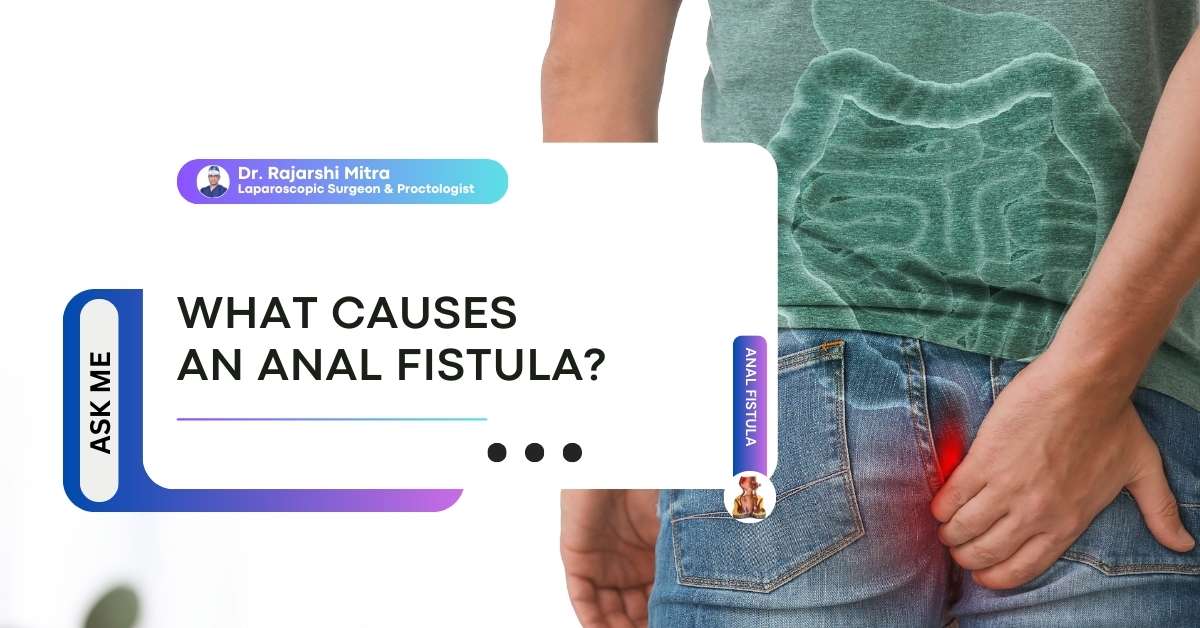Understanding the Causes of Anal Fistulas
An anal fistula is a small tunnel that develops between the end of the bowel and the skin near the anus. This condition is most often caused by an infection in the anal gland, which leads to an abscess that doesn’t heal properly. While it is a common anorectal problem, the underlying causes can vary.
Causes of Anal Fistulas
- Most Common Cause: Infected anal gland leading to an abscess
- Other Potential Causes: Crohn’s disease, diverticulitis, trauma, sexually transmitted infections
- Risk Factors: Previous history of anal abscess, inflammatory bowel disease, weakened immune system
- Importance of Diagnosis: Early detection allows for prompt treatment to prevent complications.
Infection and Abscess Formation
The most frequent cause of an anal fistula is an infection in the anal glands, small glands located within the anus. When these glands become infected, it can lead to an abscess, a collection of pus. If this abscess doesn’t drain properly or heals incompletely, it can create a tunnel, or fistula, that connects the infected gland to the skin surface.
Inflammatory Bowel Disease (IBD)
Inflammatory bowel diseases like Crohn’s disease and ulcerative colitis can also contribute to fistula development. These conditions cause chronic inflammation in the digestive tract, which can sometimes extend to the anal area. The inflammation can weaken the tissue, making it more susceptible to infection and abscess formation, which can eventually lead to fistulas.
Diverticulitis
Diverticulitis is another condition that can predispose individuals to fistulas. It occurs when small pouches, called diverticula, that form in the wall of the colon become inflamed or infected. This inflammation can sometimes spread to the nearby anal area, leading to the formation of an abscess and subsequently a fistula.
Other Causes
Although less common, several other factors can also contribute to the development of anal fistulas:
Trauma: Injury to the anal area can sometimes cause an abscess to form, which may lead to a fistula.
Sexually Transmitted Infections (STIs): Certain STIs can cause infections in the anal area, increasing the risk of abscesses and fistulas.
Tuberculosis: In rare cases, tuberculosis infection can affect the anal area and contribute to fistula formation.
Radiation Therapy: Radiation therapy for cancers in the pelvic area can sometimes damage the tissue and make it more prone to infection and fistula development.
Risk Factors for Anal Fistulas
While anyone can develop an anal fistula, certain factors may increase your risk:
History of Anal Abscess: If you have previously had an anal abscess, your risk of developing a fistula is higher.
Inflammatory Bowel Disease: People with Crohn’s disease or ulcerative colitis have an increased risk of fistulas.
Weakened Immune System: Individuals with weakened immune systems, such as those with HIV/AIDS, are more susceptible to infections that can lead to fistulas.
Importance of Diagnosis and Treatment
Early diagnosis and treatment of anal fistulas are crucial to prevent complications. If left untreated, fistulas can cause significant discomfort, pain, and drainage. They can also lead to more serious problems like recurrent infections and abscesses. Additionally, in rare cases, untreated fistulas can increase the risk of certain types of cancer.

Key Takeaways:
- Anal fistulas are most commonly caused by an infected anal gland leading to an abscess.
- Other potential causes include inflammatory bowel disease, diverticulitis, trauma, and STIs.
- Individuals with a history of anal abscess, inflammatory bowel disease, or weakened immune systems are at increased risk.
- Early diagnosis and treatment are essential to prevent complications and improve outcomes.
If you experience any symptoms of an anal fistula, such as pain, swelling, drainage, or bleeding, it is important to consult with your doctor or a Proctologist. Early intervention can significantly improve your chances of a successful recovery and prevent long-term complications.


















